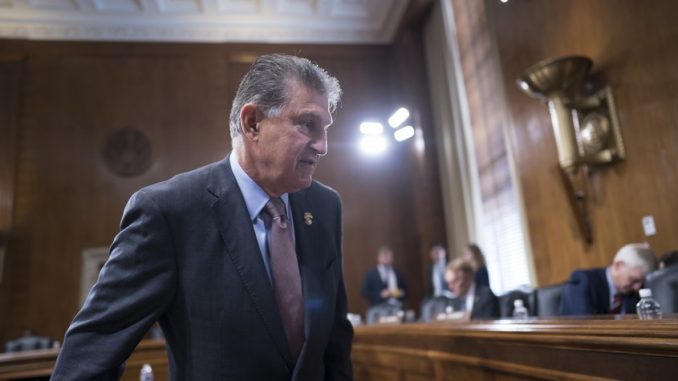
Today’s trick answer, via Reason: none. Thanks to the convoluted path that the so-called “Inflation Reduction Act” took, what started off as an expansion of an existing tax credit for electric-vehicle models on the market developed into subsidies for vehicles that only exist in the imagination.
This, explains Joe Lancaster, is what happens when utopianism meets protectionism inside the Beltway bubble:
Currently, new electric vehicles (either hybrid or all-electric) qualify for a rebate of up to $7,500, limited to 200,000 rebates per manufacturer; Tesla and General Motors have hit the cap and no longer qualify. The new bill removes the cap, and it also introduces a $4,000 credit that can be applied to used EVs.
The bill also puts restrictions on which EVs can qualify. Starting in 2024, an EV that qualifies for the full rebate amount must source at least 40 percent of its battery’s components—including minerals such as lithium, cobalt, manganese, and graphite—from either the U.S. or a country with which the U.S. has a trade agreement. Also starting in 2024, no minerals can be sourced from a “foreign entity of concern,” such as China.
The stipulation was part of a compromise with Sen. Joe Manchin (D–W.Va.), whose support was critical to the bill’s passage. Manchin insisted that the bill take a hard line on China, telling reporters: “I don’t believe that we should be building a transportation mode on the backs of foreign supply chains. I’m not going to do it.”
No one apparently bothered to check whether the US or our normal trading partners could source those requirements. As of now, China has a grip on those markets, and that will likely continue for as long as these subsidies are planned to remain in place:
But 60–80 percent of EV batteries’ mineral ingredients are controlled by China. That country currently produces 76 percent of the world’s lithium-ion batteries, while the U.S. produces only 8 percent. Despite ambitious plans to scale up, the U.S. and Europe together will likely account for only about a quarter of total global production of EV component minerals by 2030.
Lancaster notes that this really isn’t a trick question. Last week, US automakers thanked Joe Manchin for thinking of them, but warned that none of them would be able to produce qualifying vehicles:
Automakers want Democratic Senator Joe Manchin to revisit his proposal to restructure the $7,500 electric vehicle tax credit, raising fears it could be largely unworkable because of new sourcing requirements for battery components and critical minerals. …
Automakers say privately the percentage targets for critical minerals and battery components sourcing are too high and rise too quickly.
Democratic Senator Debbie Stabenow of Michigan told Reuters on Tuesday: “It’s a very cumbersome, unworkable credit once the full restrictions set in. There’s conversations going on.”
I guess those conversations ended ahead of an actual solution, eh?
The US might be able to meet this requirement — in theory. Rare-earth elements exist in the US and in North America. The problem is getting federal and state permits for the kind of mining required to get them out of the ground, not to mention all of the environmental issues surrounding the manufacture of batteries. The US, and especially the Left, has preferred to outsource those efforts and pay through the nose for those materials rather than do our own dirty work — much in the same way the Left prefers to deal with fossil fuels. They would much rather see Joe Biden go hat in hand to Saudi Arabia, Iran, and Venezuela for oil than extract it domestically.
Thus, even if the Biden administration committed to the kind of domestic production needed to meet these prerequisites, it just simply would never take place. Environmentalists would sue to block mining and manufacturing sites, assuming that state governments didn’t stop them in their tracks first.
And let’s not forget about similar issues in producing the energy to charge all of those fantasy vehicles. The price of electricity, even with subsidies and price controls, has risen faster than the overall pace of inflation over the past year, CBS reports:
Electricity prices have risen nearly 14% since last summer, the federal government says.@ConsumerReports’ @TanyaAChristian shares how to save money while staying cool this summer — and tips to make your home more energy efficient. pic.twitter.com/s3pBSPvoVV
— CBS Mornings (@CBSMornings) August 8, 2022
The new bill contains lots of subsidies for renewable electricity generation. Those, however, may run up against some of the same supply issues … as well as the usual NIMBYism. And maybe a lot more where that came from, too.
Via Hot Air
The Death of Black Coffee:
Latest studies have found that 1 tiny tweak to your morning coffee puts your body into fat-burn ing mode for the rest of the day.
This coffee trick takes less than 10 seconds…
Yet, it instantly ignites your metabolism and boosts your health, energy and well-being at the same time!
Here’s to an amazing start to your day 🙂

